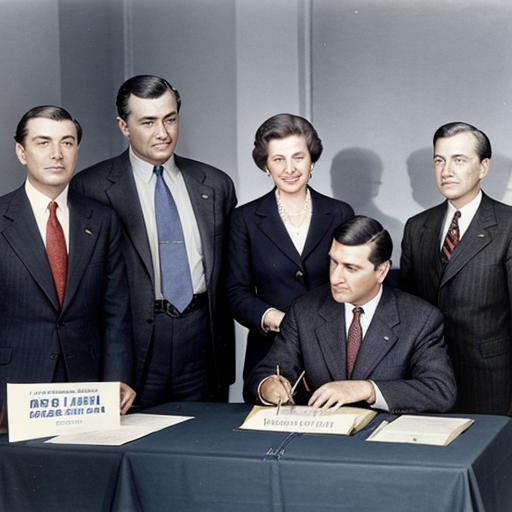Introduction
Political campaigns are dynamic, ever-evolving processes that require a combination of strategy, charisma, and adaptability. Over the years, we have witnessed numerous successful political campaigns that have left a lasting impact on history. These campaigns provide valuable lessons for aspiring politicians, campaign strategists, and anyone interested in the art of persuasion and leadership. In this blog, we will delve into some of the key lessons learned from successful political campaigns of the past.
- Authenticity Matters
One of the most crucial lessons from past political campaigns is the importance of authenticity. Voters are keenly attuned to the sincerity of a candidate’s message and actions. Successful candidates, such as Abraham Lincoln and Franklin D. Roosevelt, were known for their genuine connection with the electorate. They spoke their truths, admitted their mistakes, and were not afraid to show vulnerability. Authenticity creates trust, which is the foundation of a strong campaign.
- Building a Strong Ground Game
While modern political campaigns rely heavily on digital strategies and social media, a strong ground game remains essential. The grassroots efforts of volunteers and campaign staff can make a significant difference in reaching voters, especially in local elections. Barack Obama’s 2008 campaign, for example, excelled in organizing volunteers and engaging with local communities, which contributed to his victory.
- Effective Communication
Clear and compelling communication is at the heart of any successful political campaign. Candidates who can articulate their vision and policies effectively have an advantage. Ronald Reagan’s ability to convey complex ideas in simple terms, often referred to as the “Reagan Revolution,” is a prime example of how effective communication can resonate with voters.
- Know Your Audience
Understanding the concerns and needs of your target audience is fundamental. Successful politicians tailor their messages to address the specific interests of different demographic groups. Bill Clinton’s “It’s the economy, stupid” slogan in 1992 resonated with voters during a period of economic uncertainty. Campaigns that connect with voters on a personal level tend to be more successful.
- Adaptability and Resilience
Politics is a dynamic arena, and unexpected challenges can arise at any moment. The ability to adapt to changing circumstances and persevere in the face of adversity is a hallmark of successful campaigns. Franklin D. Roosevelt’s response to the Great Depression and World War II showcased his resilience and adaptability, securing his place in history as one of America’s greatest presidents.
- Data-Driven Decision Making
In recent years, the role of data in political campaigns has grown significantly. Successful campaigns employ data analytics to target voters, allocate resources efficiently, and refine messaging strategies. The Obama campaign’s use of data-driven microtargeting in 2012 is often cited as a game-changer in modern campaigning.
- Coalition Building
Building alliances and coalitions can broaden a candidate’s appeal and support base. Successful politicians work to unite diverse groups and interests. Lyndon B. Johnson’s skillful navigation of the Civil Rights Act through a divided Congress showcased his ability to build essential political alliances.
- Inspire and Mobilize
Great political campaigns inspire and mobilize people to action. Leaders like Martin Luther King Jr. and Nelson Mandela rallied their followers with powerful messages of hope, justice, and equality. Successful campaigns create a sense of purpose and motivate supporters to work tirelessly towards a common goal.
Conclusion
The lessons learned from successful political campaigns of the past are timeless and continue to shape the strategies and tactics of modern politics. Authenticity, effective communication, adaptability, and the ability to connect with voters on a personal level remain key elements of a winning campaign. Whether you’re a seasoned politician or a newcomer to the political arena, studying the successes of the past can provide valuable insights into the art and science of politics, ultimately helping to create a better future for all.

